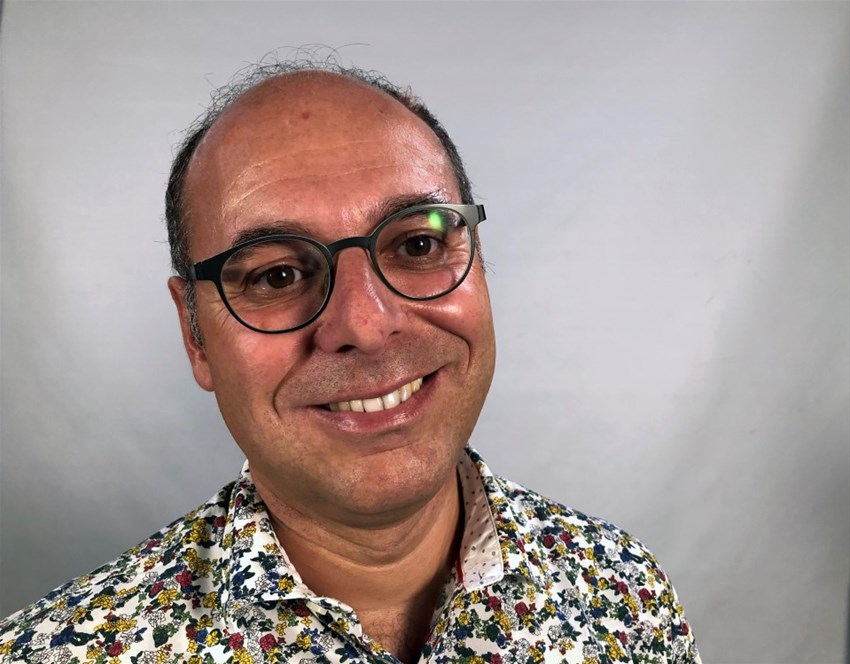“The goal of my research is to create added value for the industry”
07 Nov 2022
“Today our life has significantly improved thanks to laser technology. This is the reason why I am interested in further developing this technology and want to contribute with my small brick," says Antonio Ancona, new Professor of Automation technology with focus on control and inspection of manufacturing processes, at University West. Meet Antonio who divides his working time between University West and University of Bari in Italy.
What is your research about?
“I am an expert in laser technologies, and in particular, my research field is laser materials processing. In the last few years, I have focused mainly on the laser-based manufacturing processes; laser welding, laser 3D printing, drilling, milling and surface treatments. My task is to study and better understand the physical mechanisms involved in the laser-matter interaction to develop new laser processes or improve the quality and reliability of those already used in the industry. Thanks also to Artificial Intelligence, the goal is to develop advanced manufacturing platforms that consume less energy and materials, which is more sustainable for the environment.”
Why have you chosen to research this topic?
“During my university studies in Physics, I was fascinated by optics, photonics devices and especially lasers. Thanks to the impressive technological development of the last decades, lasers have found new applications in many fields, from environmental monitoring to medicine, telecommunications, and materials processing, and probably in the future for quantum computing. Today our life has significantly improved thanks to laser technology. This is the reason why I am interested in further developing this technology. I want to contribute with my ‘small brick’."
Tell us about your background
“I completed my studies with a master's degree in Physics when I was 23 years old, with the idea of wanting to continue my studies with a Ph.D. I have always liked experimental and applied physics. I have always been enthusiastic about the idea that the results of research carried out in a laboratory can be transferred to industry, work in a production environment, and create added value for companies. This is worth much more to me than 100 publications in prestigious journals.”
How come you have chosen to work in both Italy and Sweden?
“I did not know University West and Trollhättan at all when I received an email in 2014 from a headhunting agency hired by University West to find candidates around the world for a position as a professor of manufacturing technology. I thought it was a joke from a colleague of mine in Bari. I had a skype interview with Per Nylén, Lennart Malmsköld, and Anna-Karin Christiansson. I liked them right away, and I think they liked me too. So, they asked me to apply for the position. It was love at first sight with the research environment Production Technology West – a virtuous example of how academia and industry should work together. In short, what I had always dreamed of. And what about the colleagues? Simply wonderful! They made me feel at home right away. So, since 2015, I have worked part-time in Italy and Sweden and travelled up and down Europe, but I am always happy when I return to Trollhättan.”
How does it work to work at two universities in different countries?
“Today I am a Professor of Physics at the University of Bari in Italy and a Professor of Automation technology at University West. I decided to separate the topics to avoid overlap and competition between the research I conducted in Italy and Sweden. At University West I deal with the study and development of laser processing (welding and 3D printing) of macroscopic objects using multi-kilowatt laser power sources and developing sensors and intelligent systems to improve the quality of processes. In Italy, on the other hand, I deal with laser micro-processing with femtosecond lasers: a very particular class of lasers that allows materials to be modified at the micrometric and nanometric scale.”
Is there an area you would like to research more?
“I am already swamped with having two research groups to take care of: on very different topics. I confess that some days don’t know where to start; however, if I have to make a wish since, like all Italians, I am very passionate about cooking, good food, and wine (I also have a sommelier diploma), if I find a research topic that combines lasers with food and wine, I will consider giving up everything dedicating myself only to this.”
What has your career been like up until today?
I am pleased with my career. I would do it all again. This work has allowed me to study, know and learn a lot, travel, and meet the most influential scientists in the world who work in my sector. I hope to pass on some of what I have learned to my students.
How do you want to contribute to societal development with your research?
I hope to pass on my passion and what I have learned to my students. I hope they become brilliant researchers and contribute to the development of academia and industry. Then I hope that laser technologies will help make industrial production processes increasingly sustainable for the environment, consuming less energy and fewer materials, and polluting less and less.
Contact: Antonio Ancona, professor of Automation technology, University West



